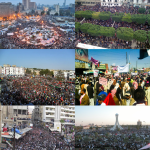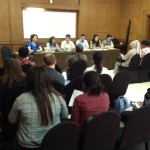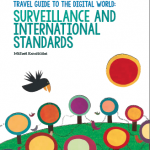 Yesterday, Canada’s Information Commissioner, Suzanne Legault, released a report – Striking the Right Balance for Transparency: Recommendations to Modernize the Access to Information Act – which includes 85 recommendations for revamping Canada’s right to information system. The recommendations include tightening the regime of exceptions in Canada’s Access to Information Act, putting in place stronger oversight mechanisms, lowering the fees for access and processing requests in accordance with tighter timelines. The Centre for Law and Democracy (CLD) wholeheartedly supports these recommendations and calls on the government of Canada to conduct a holistic review of the Act, with a view to bringing it into line with international standards.
Yesterday, Canada’s Information Commissioner, Suzanne Legault, released a report – Striking the Right Balance for Transparency: Recommendations to Modernize the Access to Information Act – which includes 85 recommendations for revamping Canada’s right to information system. The recommendations include tightening the regime of exceptions in Canada’s Access to Information Act, putting in place stronger oversight mechanisms, lowering the fees for access and processing requests in accordance with tighter timelines. The Centre for Law and Democracy (CLD) wholeheartedly supports these recommendations and calls on the government of Canada to conduct a holistic review of the Act, with a view to bringing it into line with international standards.
“These recommendations, if adopted, would represent a bold step forward for Canada’s right to information system,” said CLD Executive Director, Toby Mendel. “And yet they are eminently achievable, as reflected in laws in countries around the world, such as those of India and Serbia, which already meet those standards.”
Legault is not the first Information Commissioner to call for major improvements to Canada’s Access to Information Act. Her predecessors, going back at least to John Reid in 2002, have issued reports with many of the same recommendations. Civil society, including CLD, has also been outspoken in calling for root-and-branch reform of the law. The RTI Rating (www.RTI-Rating.org) rates Canada’s law 57th in the world, a ranking which drops every year as other countries pass new and better laws, or reform their laws to leapfrog ahead of Canada.
Despite these calls, successive Canadian governments have refused to engage in substantive reform of the Access to Information Act, which has not been significantly improved since it was first passed over thirty years ago. We sincerely hope that, at long last, the government of Canada will heed the calls for change and prioritise reform of our access to information system. Transparency and the right to information are key pillars to democratic and accountable government. Canadians deserve a system that works and that we as a nation can be proud of.
Click here for a Joint statement from Civil Society on the Recommendations
For further information, please contact:
Michael Karanicolas
Senior Legal Officer
Centre for Law and Democracy
email: michael@law-democracy.org
tel: +1 902 448-5290
www.law-democracy.org
Twitter: @law_democracy





















